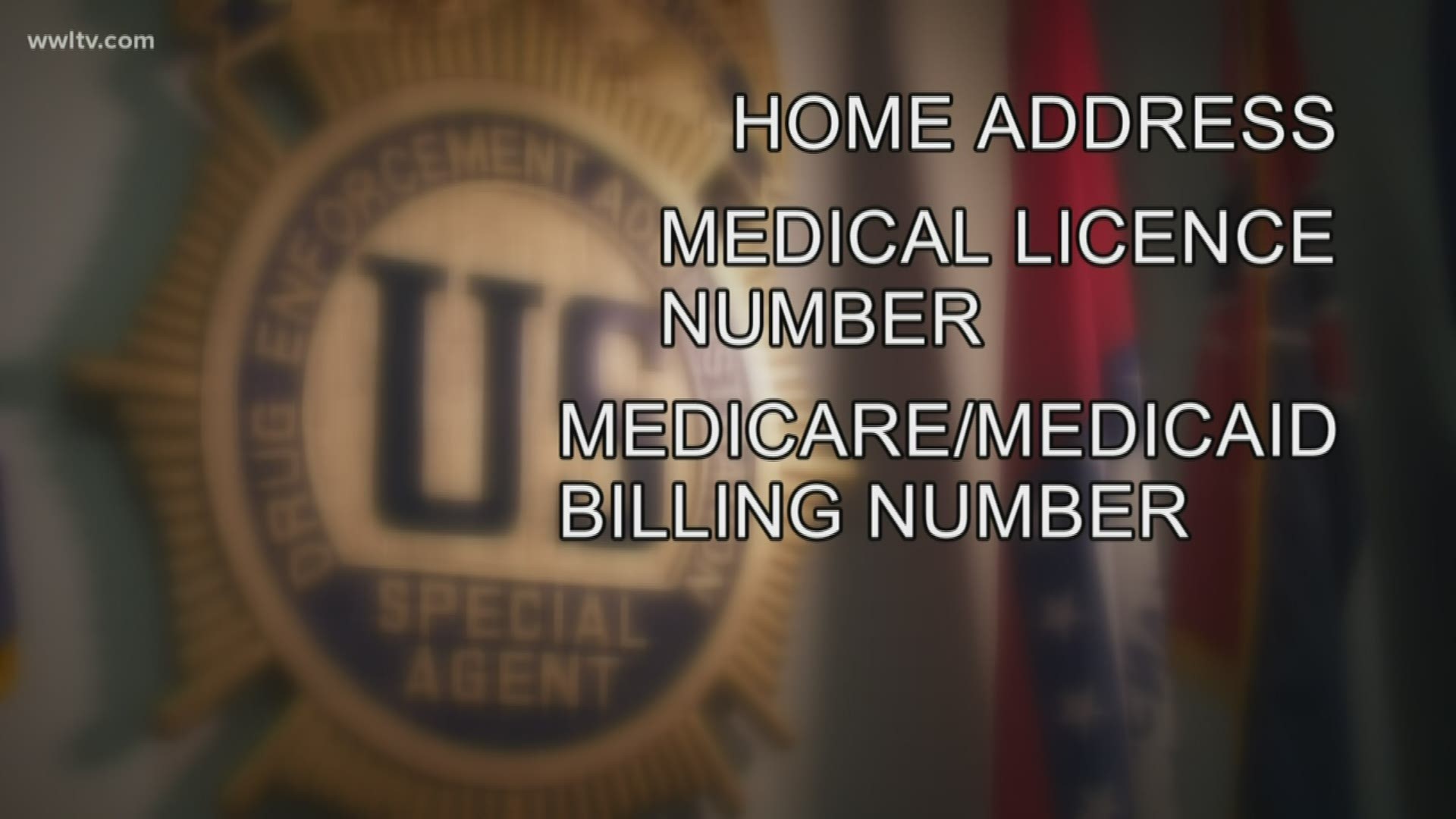NEW ORLEANS — Drug enforcement agents have a warning for everyone who works in the medical field.
There's an elaborate scam going on throughout the country and some local doctors have been hit.
Not long ago, Dr. Jim Diaz got a call on his office phone at LSU Health Sciences Center. The caller I.D. read "Department of Justice." The caller said he was a Drug Enforcement Agency agent.
"It was a human voice with a heavy accent and the person on the phone gave his name and his badge number," said Dr. Jim Diaz, of LSUHSC, who is a Professor of Public Health, Preventive Medicine and Anesthesiology. He is also the Head of Environmental and Occupational Health Sciences.
The "agent" had his home address, his medical license number and Medicare/Medicaid billing number. He brought in another man in on the call who said he was an FBI agent. They told Dr. Diaz they had evidence that he was trafficking drugs.
"And in order to release you from the warrant, you've got to pay for a bond to release you, so will you provide us with your bank account number or your credit card number," he recalled them saying.
"They're calling practitioners. They're calling teaching hospitals. My understanding, they're calling pharmacies," said Thomas Redpath, the Assistant Special Agent in Charge of the DEA New Orleans Field Division.
DEA Agent Redpath warns this is a scam hitting the medical providers with DEA numbers that allow them to prescribe opioid pain medications. They even use real DEA office phone numbers.
"So they ask for immediate payment, so that their license isn't suspended, or they don't come search their property or what have you," Redpath explained.
"These guys are good," noted Dr. Peter Scharf, of LSUHSC Institute of Public Health and Justice.
The criminologist says everyone in doctors' offices and medical students need to be aware of this.
"The other thing that struck me was how elaborate the scam was. What's frightening to anybody in this situation, is that somebody's taken the time to profile you," Scharf said.
But Dr. Diaz far outsmarted the criminals.
Every doctor has a unique prescription drug identification number.
When the caller didn't know Dr. Diaz's number, he called a real DEA agent on his cell phone and let him listen in on the speaker phone.
"You're under investigation. The DEA is listening in to our conversation and attempting to track your call," Dr. Diaz finally told the two scam callers.
For Dr. Diaz, the call ended quickly, but the scammers are not stopping.
The DEA says they will never do legal business on the phone.
Get as much information as you can and call the local office or go to their website and fill out a report.
Never give any personal information.

